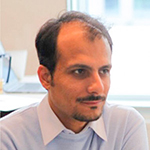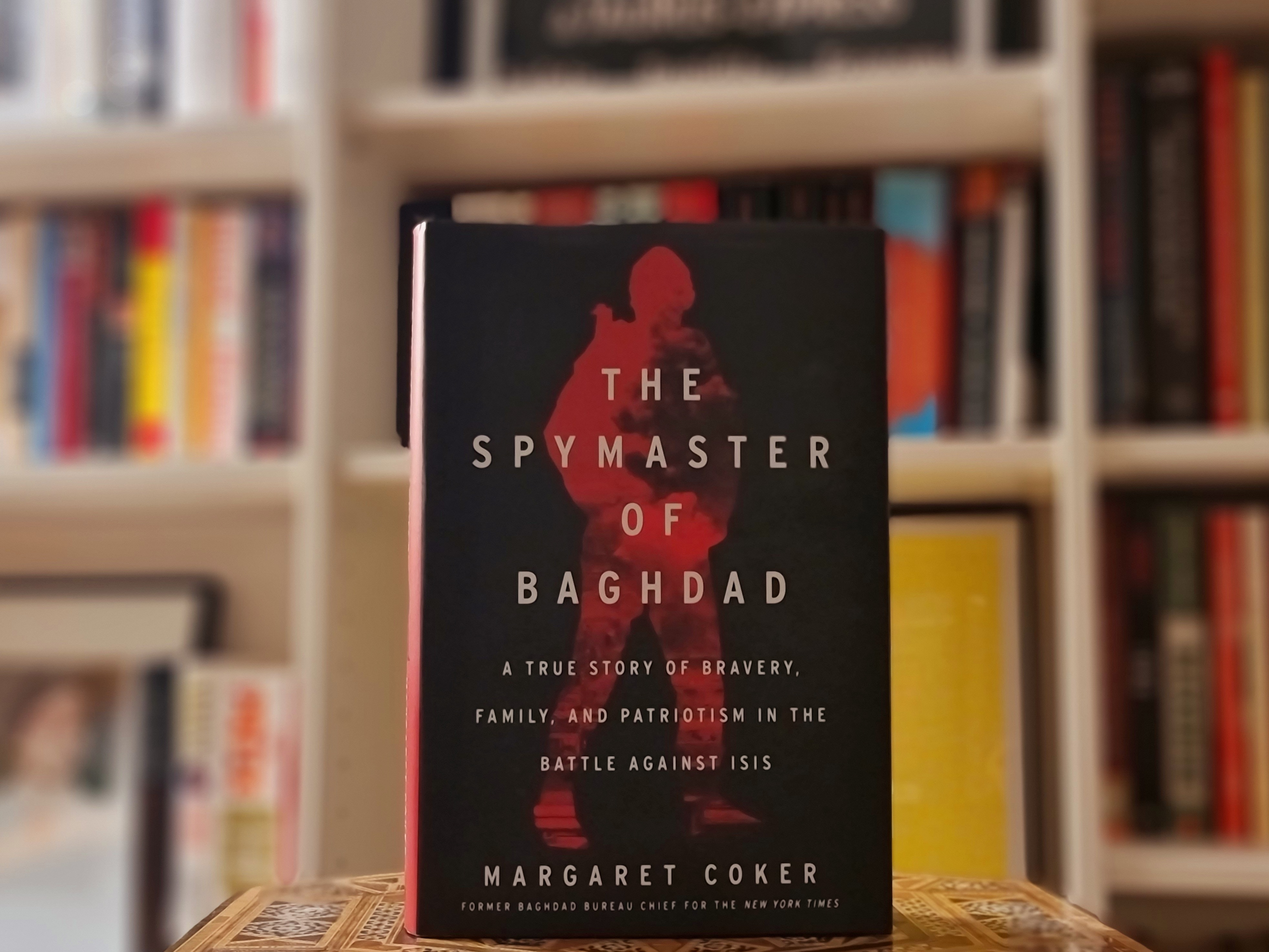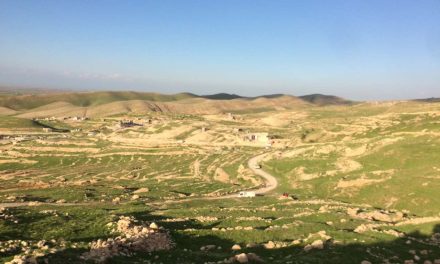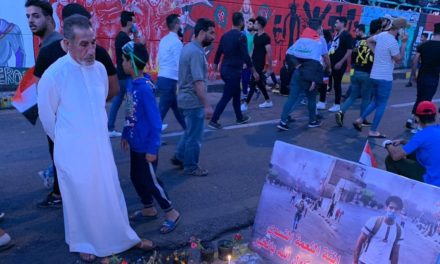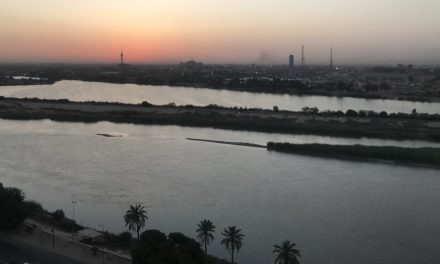(Photo Credit: AP/Khalid Mohmmed)
Without doubt, Iraq today is worse off than a year ago when hope existed that some of the major challenges facing the country would be addressed. As it starts 2020, Iraq has a caretaker government with a resigned prime minister running a country drowning in mired crises: demonstrations everywhere with hundreds dead, many missing, and a trend of violence taking over the streets which distorts the peaceful nature of the protests; just recently a breach of Iraq’s sovereignty by its supposed ally, the United States, through bombings and killing dozens of Popular Mobilization Forces (PMF), part of the official Iraqi state apparatus; the response by the families of the victims and PMF supporters who surrounded the United States Embassy in the International Zone, started fires on its main gates, and left only yesterday.
With all this at the forefront, the demands for real reform are obviously going to be postponed in favour of resolving more urgent issues like choosing a new prime minister, making sure Iraq doesn’t become an arena for regional and international powers to actively face off and settle scores, and preventing angry mobs and masked individuals from hijacking the demonstrations.
This is why I believe that keeping the demands for real reform alive is the single most important challenge facing Iraq in 2020, and resisting the takeover of the public’s interest by any other crisis, as urgent as they might be. Sadly however, the protest movement is structured in such a way that makes it vulnerable.
While many claimed that being ‘leaderless’ is an important feature of the current protest movement, this has had clear drawbacks. Leaders play an important role in directing and setting visions and goals. They act as spokespersons and give the ‘silent majority’ a chance to choose whether they want to support them and their movement. They also make sure that the boundaries, even if loose, are set so that external actors don’t enter and hijack the movement or distort its main objectives. Hijacking protests can take different forms. Sometimes, hijacking happens by distracting the public’s attention by not acting in line with the movement’s objective, or shifting the protests demands and slogans. We have seen this happen in Iraq’s demonstrations. The slogans quickly slid into chants related to the conflict in the region, or glorifying populist leaders; embassies and consulates were attacked and burnt, schools were shut down. Then the unfortunate public lynching of a 16 year old. This is a threat to the demonstrations and its supposed agenda, and a betrayal to the demands of hundreds who have fallen during them.
In 2018, I wrote on the issue and was of the opinion that protests should not be seasonal if their demands are serious. The most crucial question, in my opinion was – and still is – what the future of these protests will hold and how they can be used to support the democratic process rather than undermine it through inciting violence or forcing people to take part in civil disobedience and threatening or shaming them if they don’t.
And as I mentioned then, the demonstrations are necessary for inhibiting the ‘sense of urgency’ that any successful change effort requires, and that any slowing down of the demonstrations without any real consequences for those responsible for corruption and mismanagement will mean business as usual. Today, the demonstrations made the Prime Minister resign and pushed for some important changes in the elections law. If, however, Iraq goes into deeper crisis that will distract the public opinion of the reform agenda, it will mean business as usual, again.
For the reform agenda to remain alive, demonstrators should abide to peacefulness, put forward leaders who represent them, and prevent getting distracted with other agendas. The most important demand should be holding those who killed demonstrators accountable and demanding to have means in place that prevent the killing of protestors in the future. The next important demands should be about services as they are united in the lack of them.
Finally, there has been a lot of talk about the role Grand Ayatollah Sistani plays in Iraqi politics, with some protestors making the mistake of holding him accountable for the current situation. However, if politicians didn’t disregard the advice he has been giving them for years, things would have been better now. Unlike most influential forces in Iraq, the Grand Ayatollah Sistani has proven over and over again that he has the country’s best interests at heart, and more credit needs to be given to him, especially that he has shown support for peaceful protests since the beginning.
